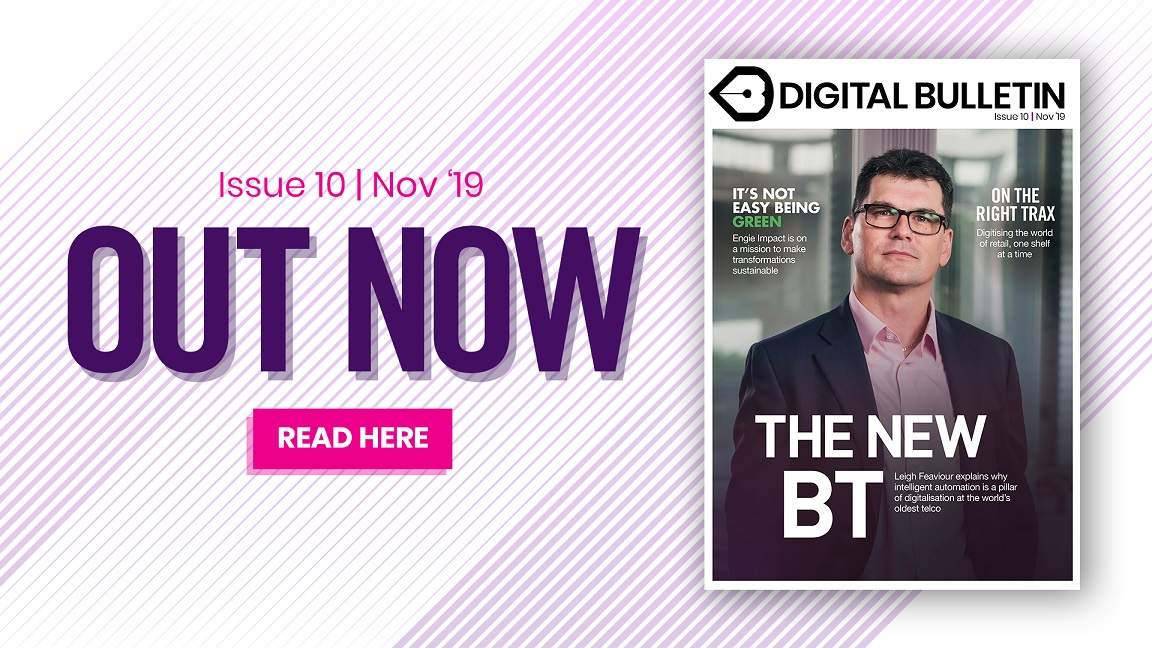
ABBYY’s Neil Murphy believes enterprises must take a holistic view for their technology initiatives to work, especially in the clamour for automation,
Introducing potentially transformative technologies into a business can throw up all manner of different challenges.
Cost, security and regulatory compliance are just a few of the topics decision-makers must assess when technologists are pushing for their solutions to be considered. It is the complex impact such integrations have on an organisation’s workforce, however – and that organisation’s approach to overall culture in this area – which must be priority zero.
That is the view of Neil Murphy, a global VP for ABBYY. In his three years with the company, Murphy has had a ringside seat for some bold technology deployments by its clients, mainly in the automation space. From his experience, prosperity comes when businesses give thought to culture and people at the very beginning of their technology journeys.
“There needs to be a big circle of education – and in education, the whole angle is the culture,” Murphy outlines in an exclusive interview with Digital Bulletin. “In automation, for example, some people straight away think that it puts their job at risk. Consequently, there can be pushback to automation that’s been suggested or is already being implemented.
“It’s a big issue but those that are successful are those that acknowledge that up front and have programmes in place to help with culture adoption and the need to embrace these technologies. For those that don’t adopt the right culture, the technologies can actually have a minimal impact.”

As Murphy highlights, culture is all-important in the contentious field of automation. ABBYY’s portfolio of AI-based technologies – including its established document capture software and its newly-acquired process mining solutions – are used by eight of the 10 leading RPA (robotic process automation) vendors, providing a critical link in the automation chain.
RPA gives businesses the opportunity to hand repetitive, computer-based jobs from human employees over to software robots, greatly speeding up the completion of those tasks and freeing up workers to use their skills elsewhere. One of the fastest-growing segments in enterprise software, Forrester predicts the RPA market to be worth $12 billion by 2023; when Murphy started at ABBYY in 2016, that figure was a mere $250 million.
But putting these eye-catching projections aside, automation vendors – and consequently companies like ABBYY – are fighting a PR war against the backdrop of a digital revolution and the suggestion that many jobs will actually cease to exist. Murphy re-emphasises his previous message: people and technology culture remain essential.
“Sometimes the statement about redeploying the workforce is met with scepticism, thinking it’s about losing headcount,” he says. “But from experience, the whole piece around delivering RPA successfully is dependent on having the skills to make the most of it and develop new ideas with it. And we definitely see that intent within organisations.
“We see the main challenge now as being how you use those workers to do more creative tasks. One client has a whole education system inside the organisation to train workers with courses around machine learning and how to understand that, for example. Or they have data scientists who they can refocus on some of the AI technologies they’re bringing in. There are big challenges around making sure there are enough people with the right skills.”
On this point, Murphy cites a recent Deloitte study with worrying implications for a jobs market increasingly dependent on digital skills.
Focused on the United Kingdom, where Murphy is based, results painted a concerning picture: just 16% of executives surveyed believe their teams can deliver their digital strategy, 88% think graduates aren’t equipped with the required skills and more than 75% experienced challenges in their digital recruitment.
“Having those with the right kind of background who understand these technologies is pretty tough, let alone those who are supposed to be using those technologies inside organisations,” Murphy admits.
“If you went back two years, not many people had heard of RPA, for example. Now RPA is seen as the main vehicle for bringing AI into an organisation. RPA itself is not AI, but it is an enabler for AI-type technologies like ours. That rate of change challenges organisations and those that are successful are those that are investing in their own people and putting on their own courses.”
ABBYY works with Deloitte and other major consultancy firms to prepare clients as much as possible for the shift to automation. While workplace consultancy isn’t an outright part of its business, Murphy says it recognises the responsibility it has in helping customers understand how they’re looking to effect change.
He defines ABBYY’s overarching mission as being “to supplant the skills gap by providing ready-built skills from a technology perspective”. In other words, to provide the necessary technology skills to enable digital and non-digital workers to do their job better, easier and more efficiently, even if they don’t have the native skills themselves.
It’s easier to make sense of ABBYY’s proposition by examining its ever-expanding group of cognitive solutions. Founded in 1989 – thus marking its 30th anniversary this year – the Russian company’s core capability has been around document capture and optical character recognition; software for organisations to automatically read the content of and extract information from almost any type of business document.
This has evolved into ContentIQ, which is ABBYY’s umbrella term for the services it now offers in this area through the Vantage platform. Vantage incorporates advanced AI to deliver unprecedented detail and insights from document capturing.
“Invoicing is where a lot of companies start, but we’re now moving into much more challenging areas like understanding contracts and then bridging those key details in the contract to other things like purchase orders to make sure they meet those terms,” says Murphy.
ProcessIQ is an extension of ABBYY’s services that goes beyond document capture and examines business processes. The company acquired TimelinePI in August and took a step into the market of process mining, which Gartner estimates will triple by 2023. TimelinePI’s technology allows users to identify opportunities for improvements, compliance issues and measure the performance of human and digital workers.
Murphy sees it as another ABBYY “building block” for enabling automation at scale for enterprises.
“We work with a major drinks manufacturer and it started with RPA at a basic level,” he adds, introducing a case study. “It began by using our capture platform to pick up emails with invoices. That was the first process it looked to automate.
“It freed up 90 workers from its central hub and it has now identified another set of processes to move on to. The next one is purchase orders and then the next is all of its paperwork from its drink suppliers around the world. All of the organisations who are doing this now are starting with one or two processes, but then they’re looking to scale.”
Those that are successful are those that have programmes in place to help with culture adoption and the need to embrace these technologies
An ABBYY study published in September found that almost two-thirds (62%) of those investing in content-centric process automation have seen improved efficiency, while over half (55%) of businesses using RPA have seen improved efficiency (55%), greater market share and increased revenue (52%). Eighty-two percent have also seen a return on their investment within a year.
But with more than half of organisations surveyed still not investing in such technologies, what else can ABBYY and automation vendors do to get their message across?
“We position ourselves around helping provide companies with their overall digital transformation,” says Murphy. “We never want to the automation platform itself; we don’t want to be an RPA vendor, but we want to provide the building blocks around that to enable automation strategies.
“With the digital skills gap, you have a workforce that isn’t expert in things like document understanding. That’s one of our main focus areas: how do we bring our technology to a level for non-expert users to go and consume this in their native applications?
“Then there’s the whole process mining and intelligence market. This gives us another strategic angle to any C-level person in the organisation where they’re looking to make these kind of investments.
“We’re looking at further developments and acquisitions in the future to form other building blocks around a digital transformation automation system. We’ve never been in such a strategic position with buyers in large organisations but there’s definitely a lot more to come.”
The debates around technology and people might rumble on for some time yet, but ABBYY – now a multinational with 1,300 employees based from Silicon Valley to Japan – looks like it’s on the right track.
And one thing is becoming increasingly evident: automation, when born into the right culture around technology adoption and the workforce, is a powerful tool for business transformation.



